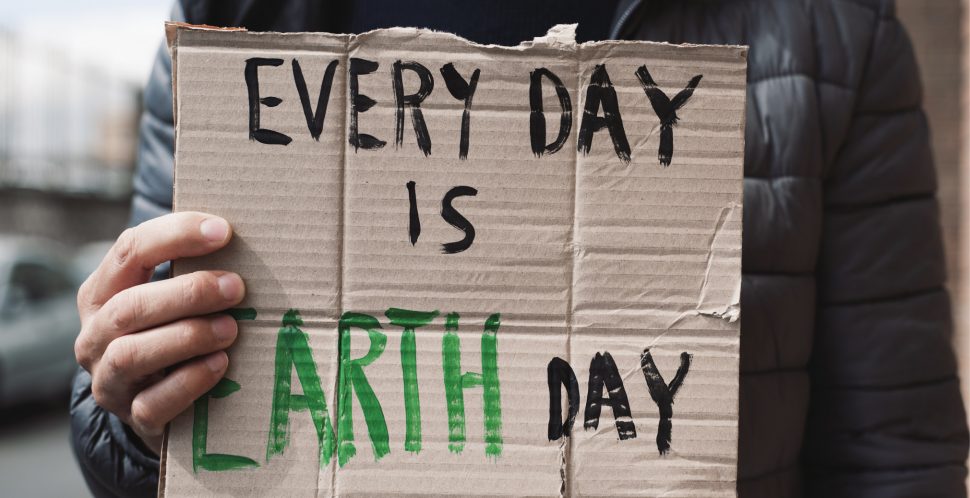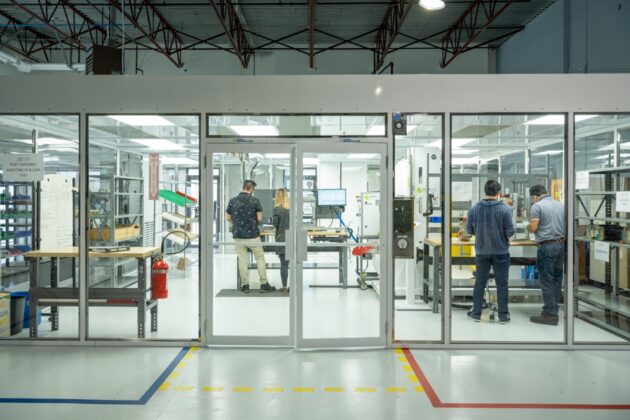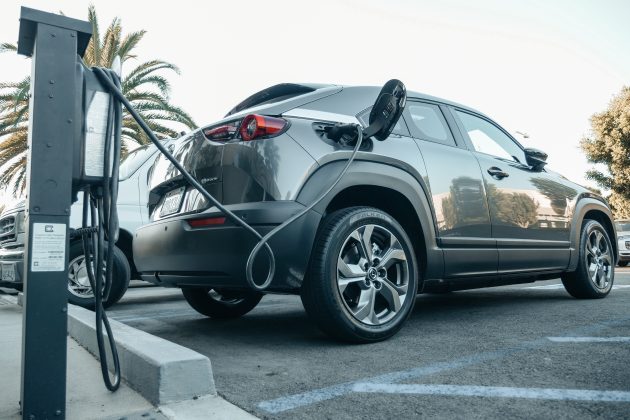Earth Day promotes collective support for environmental protection, but it’s become apparent in recent years that we don’t have the luxury of only dedicating attention to the earth when observing an annual event.
We need every day to be Earth Day, particularly as we inch closer to our uppermost global warming limit of 1.5 degrees Celsius, as outlined in the Paris Agreement. And to do so – to systemically alter the way we live, work and play, to reverse the encroaching effects of climate change – we need cities to lead the charge.
How cities can start a movement (and why they need to)
“Cities have an incredible power to influence the regions around them,” says Alex Boston, executive director of Renewable Cities, a global program that helps cities transition to 100 percent renewable energy. “Some cities are on the vanguard of amazing innovation – for example, Vancouver’s leadership in new building construction. Sustainable policies introduced in Vancouver [such as the Zero Emissions Building Plan] are altering the way construction sites work across BC, and this in turn is influencing what happens in the construction industry across Canada.”
Renewable Cities has supported several infrastructure additions in Vancouver to accelerate urban climate solutions. One example is the Metro Vancouver Zero Emission Innovation Centre, a low-carbon centre that identifies, finances and scales up climate solutions like building retrofits and electrification of transportation.
Many city-led changes are policy-based. For example, the City of Vancouver’s Renewable City Strategy is a trailblazer for climate change, envisioning a region where jobs and businesses are diverse, transportation is abundant and efficient, and the economy thrives while affordability improves. The strategy’s targets are ambitious – transition to renewable sources for 100 percent of the energy used in Vancouver, before 2050; and reduce greenhouse gas emissions by at least 80 percent below 2007 levels, before 2050 – yet hundreds of cities around the world have eagerly followed suit.
In 2019, the City declared a climate emergency, calling for urgent measures to cut carbon and integrate equality. Again, Vancouver became a model for global cities to follow: affordability and climate change had, until then, been addressed in isolation. Soon after, the Climate Emergency Action Plan (CEAP) was introduced, with a goal of slashing carbon pollution from two of the city’s biggest sources: burning fossil fuels in vehicles and buildings.
Unlike many individual and collective sustainability initiatives, CEAP calls for a drastic shift in the way people and businesses operate. Transit and active transportation, such as cycling and walking, will need to overtake driving – there’s simply no more room for additional road space or parking. Building and renovating – the biggest sources of carbon pollution in Vancouver – will need to integrate low-carbon materials and practices as the construction industry moves towards zero emissions (deconstruction is one example – see here for more).
There are other areas where cities are leading the charge. For example, City of Richmond developed an innovative electric vehicle (EV) charging infrastructure requirement for new multifamily buildings, which was swiftly adopted by the City of Vancouver. Now, the policy has been implemented in major cities across North America, and will likely be adopted provincially with a requirement for all new buildings to offer EV charging capacity.
Another example is Vancouver Economic Commission’s Project Greenlight, an initiative that promotes rapid transformation by connecting major enterprises – including the City of Vancouver, FortisBC and TransLink – with local and global innovators. Based around a challenge process, the program helps enterprises find emerging technologies that can help to accelerate smart and sustainable transformation across the region.
Of course, there are several issues that continue to challenge virtually all major cities, such as integrated land use, housing and transportation planning, which are essential to address affordability and equity priorities. Land use and equity is a particularly critical arena for the City of Vancouver, and represents the next domain of transformative change.
How to achieve responsible tourism (it helps to have a destination sustainability manager)
Destination marketing organizations (DMOs) are similarly positioned to champion sustainable change – indeed, they have an obligation to promote and facilitate responsible tourism.
In 2016, Tourism Vancouver introduced a new role that was virtually unseen in DMOs, one dedicated to sustainable destination development. That year, the organization commissioned the Tourism Master Plan, which identified a need for Tourism Vancouver – in partnership with the City of Vancouver and Vancouver Economic Commission – to take a much more active role in collaborative destination development. Since then, Gwendal Castellan, manager of sustainable development, has worked closely with local tourism businesses to identify ways they can reduce or eliminate emissions while supporting a responsible model for business and tourism.
“Any organization that engages in promotion and management of a destination needs a person or department who can put in place the systems and structures needed to achieve responsible tourism and growth,” says Castellan. “If not properly managed, the increases we’ve seen in global tourism over the past decade will drastically increase carbon emissions and resource use, as well as displacing residents from community attractions and shared activities.”
In Vancouver, there are several resources to help organizations integrate sustainability, to the point where it becomes a business model focus. One example is the Embedding Project, which advises companies on best practices to embed sustainability into their daily operations and decision-making.
Castellan advises businesses to start their sustainability journey by assessing where they have the most opportunity for positive impact – for example, a hotel might focus on building energy efficiency and reducing waste while a walking tour operator could add social enterprises to their tour itineraries. It’s also useful to make a public commitment, advising employees, customers and consumers that sustainability will guide future decision-making. Finally, certifications are a good way to find a reference benchmark; the Green Key Global and B Corp are two of the most recognized.
“DMOs need to work closely with their community, businesses and government to tackle the surge in major climate-related events we’ve seen in the last few years, including forest fires and storms,” says Castellan. “I see this as a tremendous opportunity for Vancouver to emerge as a global leader.”
It’s time to reframe our lives to achieve equity and sustainability
Vancouver-based OneEarth is committed to innovating and amplifying solutions for one-planet living in cities and around the world. Launched in 2005, the nonprofit works with partners and change-makers in government, business, civil society and research to ensure wellbeing for everyone, equitably and within the means of the Earth – particularly important as the world continues to grapple with a global pandemic.
“COVID-19 is transforming our daily lives, and revealing both the risks of encroaching on natural ecosystems and vast inequalities of our lived experiences,” says Vanessa Timmer, OneEarth’s Executive Director. “It also raises questions about what is essential, the importance of connection and caring, supportive policies and public spaces. It asks us what we value and how we choose to live.”
Transforming lifestyles is a key part of addressing climate change. The scale of change necessary in current ways of living is bigger than many believe. According to a footprint analysis by OneEarth Senior Associate Dr. Jennie Moore, who leads the BCIT Centre for EcoCities, the global population will need to reduce its carbon footprint by 80 to 90 percent to make a noticeable shift in climate change. These shifts are also deeply tied to inequity and social justice: OneEarth contributed to the Cambridge Sustainability Commission on Scaling Behaviour Change (April 2021), which reports that most of the growth world’s emissions are due to the activities of the richest 10 percent. In addition, recent studies show that two-thirds of all emissions end up in households.
Behavioural changes by individuals and households (e.g., affecting diet, transportation choices, personal vacations, housing-type, etc.) are essential if we are to achieve one-planet living. OneEarth is supporting communities and workplaces to focus on these high-impact actions, in partnership with UN Environment. These positive actions by first adopters can be catalysts for shifting social norms and encouraging more people to adjust their daily lives for the benefit of our planet.
However, this is not enough. OneEarth Director Bill Rees, founder of the Ecological Footprint Analysis, notes “a supportive policy framework is critical if the ‘contagion’ is to spread far and deeply enough to become a true social movement.” This enabling context of policy, markets, infrastructure and culture needs to do the heavy lifting of making sustainable living a reality.
Globally, through the Beacon for Sustainable Living, OneEarth joins forces with the Hot or Cool Institute to identify promising solutions, including visualizing sustainable living futures and working with cities and policymakers in partnership with C40 Cities. In Southwest British Columbia, OneEarth collaborates with Vancity to mainstream Lighter Living; this includes supporting neighbourhood-level actors and identifying the array of motivations that lead to lighter living behaviours. Further, OneEarth and Vancity work alongside the BCIT Centre for EcoCities, local governments in BC, schools and partners through initiatives such as One Planet Saanich, the Share Reuse Repair Initiative (SSRI) and CityHive on youth civic leadership; and with Metro Vancouver on Love Food Hate Waste and the National Zero Waste Council. Together, these organizations are helping to transform people’s daily lives to advance global sustainability.
While the task of reversing climate change seems monumental, change is already happening at the city level. If businesses, government, communities and individuals make a commitment to alter the way they live and work, for the benefit of the planet and each other, that change will amplify and grow over generations. Only then can we finally achieve the just, equitable and sustainable society initiatives like Earth Day endeavour to achieve.



